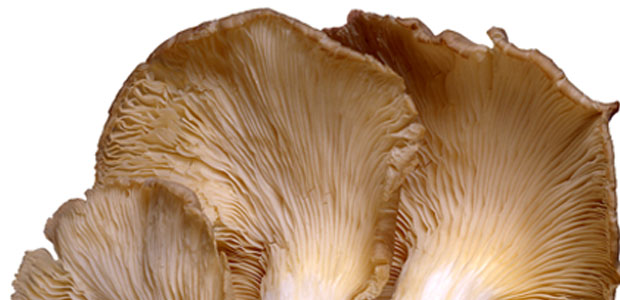Advertisement
Maitake Mushroom
Maitake (Grifola frondosa) is the latest mycologic superstar. Used for centuries in Japanese herbal medicine to strengthen the body and improve overall health, recent research indicates that it may be the most potent of all mushroom-derived medicines in terms of its anti-tumor and immune-enhancing activity. Since the feudal era of Japan, people have been known … Continued

Maitake (Grifola frondosa) is the latest mycologic superstar. Used for centuries in Japanese herbal medicine to strengthen the body and improve overall health, recent research indicates that it may be the most potent of all mushroom-derived medicines in terms of its anti-tumor and immune-enhancing activity.
Since the feudal era of Japan, people have been known to travel long distances in the wild to acquire this highly-prized giant, a single cluster of which can weigh as much as 45 kilograms. Maitake means “dancing mushroom” and is so named because people were said to dance with joy when they found it deep in the mountains. During the feudal era, maitake also had monetary value and was exchanged for the same weight in silver by local lords who in turn offered it to the national leader, the shogun.
Today, North Americans are often surprised to learn that mushrooms are the source of several anti-cancer drugs and that maitake’s anti-tumor activity may be superior to many of them. In one animal experiment, maitake was able to shrink tumors better than other mushroom-derivatives, including the all-time best-selling cancer drug sold in Europe and Asia.
Understanding D-Fraction
Most research studying maitake’s immune-potentiating properties has employed an extract, called D-fraction, which contains a concentration of the mushroom’s immune-activating component. One study compared maitake D-fraction with a widely-used chemotherapeutic drug. With just a small dose, the maitake extract produced an 85 percent tumor shrinkage in mice compared to 30 percent with the drug. When the two agents were combined in half-doses, an astonishing 99 percent tumor shrinkage was achieved in 14 days.
Studies have been conducted to find out specifically how maitake works with the immune system. It was discovered that maitake contains a polysaccharide, or carbohydrate, called beta glucan that appears to activate the immune system’s “soldiers” that travel the bloodstream. One of these is a large white blood cell called a macrophage which swallows microorganisms, pathogens and tumor cells. The action has implications for fighting everything from colds to cancer. The latest published research on maitake also reveals that the mushroom has the ability to initiate the death of prostate cancer cells.
While maitake D-fraction may be the product of choice for immune support, tablets of the whole, dried mushroom are proving to be effective for many other conditions which I call “conditions of excess:” obesity, high blood pressure and high blood sugar. Maitake helps adjust altered body conditions to normal.
Subjects given 20 500-mg tablets per day of the whole dried mushroom for two months lost 12 pounds on average while changing nothing in their diets. At the end of the trial, doctors felt that the patients would have continued to lose weight if the trial had been extended.
A last example: one physician at the Cancer Treatment Centers of America, with a family predisposition to high blood pressure, has found that within an hour of taking the tablets he measured a reduction which was maintained up to six hours. On a regular schedule of two tablets, three times a day, his blood pressure remained normal without prescription medicine.
Maitake Success
I have personally witnessed a case in which maitake played a significant role. Beulah, a 70-year old woman was diagnosed with pancreatic cancer. Surgery revealed that her tumor was inoperable. Her doctors recommended chemo-therapy but said she probably had only three months to live. She began to take maitake D-fraction four times a day along with multiple vitamins and minerals and pancreatic enzymes.
For most patients, chemotherapy causes much discomfort including terrible nausea, but Beulah sailed right through her treatment. After six months, and no signs of worsening, the doctors said, “Whatever you’re doing, keep doing it!”
Beulah continued her program and was active and never complained. When people asked what she was doing, she told them that, out of all the products she was taking, she felt the maitake was doing the most good. Recently, Beulah quietly passed away with no suffering whatsoever. This was over three years after her diagnosis. She had been doing volunteer work right up until she died. Her family was thankful that they had the three extra years to spend with her.




